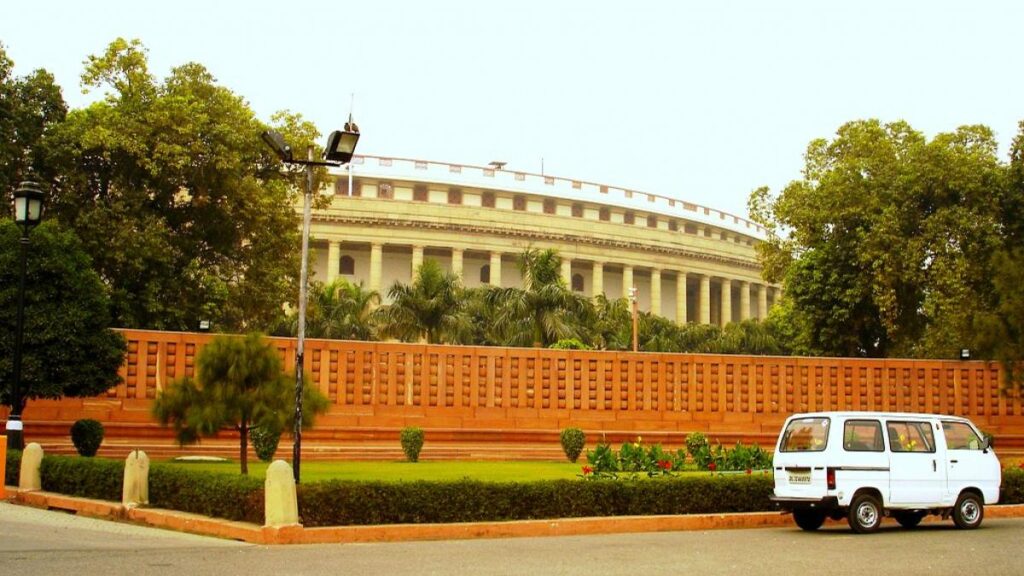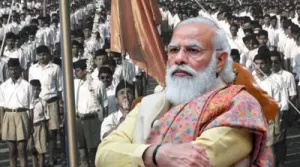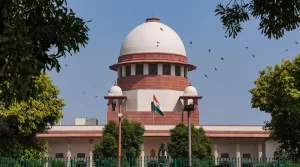Shortly before the 75th anniversary of independence, it is imperative to recall ideas of the role and responsibilities of Parliament that were debated during the freedom struggle. The concept emerged: Parliament would represent people’s sovereign will and make laws after deliberating the issues they confront. Above all, it would hold the government to account.
Gandhi’s Vision
Mahatma Gandhi’s illustration of Parliament, on 3 November 1917 at the Gujarat Political Conference is considered of the foremost descriptions of the role of Parliament. Former President, late K.R. Narayanan, cited Gandhi’s words in his outgoing speech. They are, “What, then, would our Parliament do, if we had one? When we have it, we would have a right to commit blunders and correct them,” Gandhi said. He said in the early stages of being a republic, people were bound to make blunders. “But, we, being children of the soil, won’t lose time in setting ourselves right,” Gandhi said.
Narayanan chose to highlight Gandhi’s words on the critical struggles before India a few decades before Independence; that we shall “soon find remedies against poverty” and no longer depend on “Lancashire goods”. Crucially, Gandhi said in this address that India would not then spend “untold riches on building Imperial Delhi”. It was, of course, in keeping with the poor of India, whom Gandhi spoke of through his lifetime. Narayanan said that according to Gandhi, “The freedom to err and the power to correct errors is one definition of Swaraj [self rule]. Having a Parliament means such Swaraj.”
In the same November 1917 address, Gandhi famously said, “We ought to have Parliament this very day. We are quite fit for it. We shall, therefore, get it on demand. It rests with us to define ‘this very day’.”
Just a few months later, on 21 February 1918, Gandhi wrote to the humanist Florence Winterbottom presciently that India “must pass through the throes of Parliamentary government and, seeing that it is so, I naturally support a movement which will secure the best type of Parliamentary government…”
Note that thirty years later, on 17 December 1946, even the right-wing leader Syama Prasad Mookerjee said the Constituent Assembly, of which he was a member, should have been declared the first Parliament of a free and sovereign Indian republic.
Nehru’s Objectives Resolution
India’s first prime minister, Jawaharlal Nehru, moved the famous Objectives Resolution in the Constituent Assembly which set the stage to write a Constitution with a parliament and parliamentary democracy as part of its basic structure. On 14 November 1985, R. Venkataraman, the 8th President of India, cited Nehru’s views in his inaugural speech at the Seminar on Nehru and Parliament, held in New Delhi.
Nehru had said, “Parliamentary democracy demands many virtues. It demands, of course, ability. It demands a certain devotion to work. But it demands also a large measure of co-operation, of self-discipline, of restraint… We know very well that there are not many countries in the world where it functions successfully. I think it may be said without any partiality that it has functioned with a very large measure of success in this country. Why? Not so much because we, the Members of this House, are exemplars of wisdom, but, I think, because of the background of our country, and because our people have the spirit of democracy in them.”
Recall that the first law minister Dr B.R. Ambedkar had brilliantly explained while moving the draft constitution in the Constituent Assembly, that central to a parliamentary democracy is accountability of the executive to the legislature. This is in contrast to the presidential system where not accountability but the stability of the executive is the defining feature.
K.R. Narayanan and Bipartisanship
In his address to the nation during the Golden Jubilee celebrations of the Indian Republic in 2000, Narayanan said that the Constitution’s framework preferred accountability over stability of the executive. This was so that the system of government did not slip into authoritarianism.
Unfortunately, a kind of absolutism has gripped India, particularly during the last eight years. This is contrary to the vision of the figures who framed the Constitution. In Narayanan’s words, “The form of government, the parliamentary democratic form, was chosen by the founding fathers after deep thought and debate.” To him, the parliamentary system was a deliberate and well-thought-out choice of the Constituent Assembly. “It was not chosen in imitation of the British system or because of the familiarity with it that India had acquired during the colonial period,” he emphasised.
He then referred to Gandhi acknowledging India’s debt to the British parliamentary system of government, while affirming the deep roots of such a system in the age-old village panchayats. He also referred to Ambedkar’s explanation that the Buddhist Sanghas were a parliamentary type of institution, which used modern parliamentary devices such as resolutions, divisions, whips, etc. In Narayanan’s words, “These elements in our heritage made it possible and easy for India to adopt the parliamentary system of democracy.” Another factor he referred to is India’s geographic extent and perplexing variety and diversity, which made parliamentary governance the most well-suited.
We must also recall the decision of former prime minister Atal Bihari Vajpayee’s government to review the Constitution. At the time, Narayanan had asked a sharp question, “Let us examine if the Constitution has failed us or we have failed the Constitution.” That interrogation compelled the government to abandon a review commission—though it still set up a commission to review ‘the working’ of the Constitution!
Assault on Parliament and Democracy
The Constitution and its vision of India are continuously under threat today, as are Parliament and democracy. Bills are passed without discussion and by voice vote. If Members of Parliament demand actual voting as the Constitution lays down, they are denied. The farm laws against which the farmers launched a historical movement and which lasted well over a year is a prime example of the fallout of such refusals. The government was forced to repeal those laws at great cost to the people, simply because it rejected the deliberative and consultative law-making process. When none other than the prime minister ridiculed the protesting farmers as “andolanjeevi”, it is disparaging of Ambedkar, whose words “educate, agitate, organise”, are a slogan of Dalit struggles for justice and uplift.
Recently, the Chief Justice of India expressed the concern that bills are passed without much discussion, so the legislative intent of laws is unclear even to judges who are supposed to examine their constitutional validity. Governance sufferers in such circumstances, and executive dominance becomes the norm. These are ominous developments that weaken democracy.
The central government is also reluctant to send bills to Parliamentary Standing Committees for scrutiny. These department-related committees were inaugurated in 1993 during Narayanan’s term as vice-president (who also chairs the Rajya Sabha). He defined their real purpose as places where governance would be fine-tuned via deliberations of all political parties. At its core, the committee exemplifies bipartisanship, whereas a partisan system destroys the larger role of Parliament to reflect people’s will.
Parliament Belongs to Opposition
Dr Ambedkar said Parliament belongs to the Opposition. But tragically, even the Chairman, Rajya Sabha, has spoken about the “tyranny of the Opposition”. The space for Opposition in Parliament is shrinking, and so is the room to discuss price rise, unemployment and worsening economic conditions in Parliament. More than 20 Opposition parliamentarians were recently suspended for demanding a discussion on inflation. This follows the trend of last year, when during Winter Session, twelve Rajya Sabha MPs were suspended for the entire session for alleged misconduct on the last day of the previous (monsoon) session in August 2021. They said the rules do not provide for suspension over events in a previous session, yet it was carried out. Such developments have a bearing on the dignity and prestige of the Rajya Sabha.
In 2020, this author noted the problems with the government of India dispensing with the Winter Session citing the Covid-19 pandemic. The travesty of the situation was that Bharatiya Janata Party (BJP) leaders, including Prime Minister Narendra Modi, addressed political rallies which thousands attended as the pandemic peaked. In 1935, Ambedkar said the British rulers assembled the legislature “primarily for collecting revenue,” while disallowing it to question day-to-day administration or moving legislation to remove social grievances. He said in the Constituent Assembly, “I do not think any Executive would hereafter be capable of showing this kind of callous conduct towards the legislature”. The Modi regime has proved him wrong 71 years later.
Parliament is convened for fewer and fewer days. The culture of scrutiny of legislative proposals is weakening. Brute executive dominance over legislative processes prevails. The decline of the legislature and culture of holding government accountable are visible. It negates the vision of Parliament leaders nurtured during the freedom movement and bulldozes the Constituent Assembly’s reasons for desiring a parliamentary system. We must salvage Parliament and democracy and defend the idea of India as we approach the 75th anniversary of our independence.
(S.N. Sahu was Officer on Special Duty and Press Secretary to former President of India K.R. Narayanan. Courtesy: Newsclick.)




